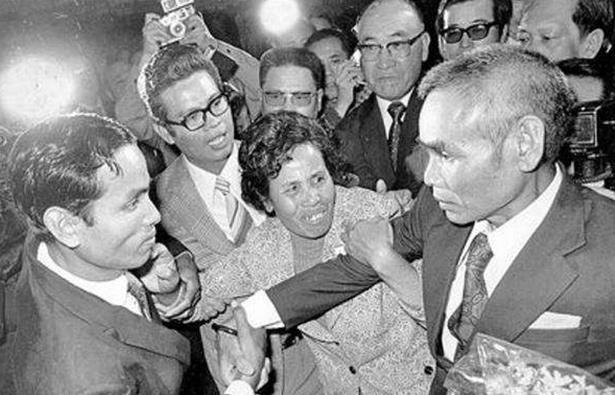After The Surrender of Japan in 1945, the unsuspecting Onoda Hiroro remained hidden in the Philippine jungle for 29 years before being discovered and repatriated to Japan in 1974, known as the "last Japanese army to surrender".
In fact, it is not accurate to refer to Onoda Hiroshi as "the last Japanese army to surrender", because onoda Hiroro officially surrendered on March 10, 1974, and nine months after his surrender, that is, in December 1974, another Japanese soldier announced his surrender on the Indonesian island of Morothai, namely Nakamura Keio.

Similar to onoda's experience, after the defeat of Nakamura's Japanese Takasa Volunteer Team, Nakamura fled into the local mountain forest to wait for reinforcements, and the result was a full 30 years.
But unlike Onoda Hiroshi, Nakamura is not actually Japanese, but a native of Taiwan, whose original name was Li Guanghui, which is why Japan did not recognize Nakamura later.
So the question arises: Why would Nakamura, a Taiwanese, willingly wait for the Japanese for 30 years?
This also dates back to the Sino-Japanese War at the end of the 19th century, when the defeated Qing government ceded Taiwan to Japan under japanese colonial rule.
In this case, cultural invasion is naturally inevitable, and Nakamura Huifu, a group of Taiwanese, grew up in such a complex environment. Therefore, when Japan began to recruit troops in the local area, many people did not reject too much, and even actively signed up to join the army, after all, the treatment given by the Japanese was still good.
More importantly, Nakamura Keio is still an indigenous Takasa people, you know, the Takasa people are notoriously excellent athletic ability, very suitable for jungle combat in Southeast Asia, the Japanese also like this, specially set up a "Takasa Volunteer Team", sent to Southeast Asia to fight.
Although these Takasa people did their best to give their lives to the Japanese, in the eyes of the Japanese, they were nothing more than a group of mercenaries and ghosts for the dead. Therefore, when the Takasatsu Volunteers suffered a crushing defeat in Indonesia in 1944, the Japanese army not only did not provide assistance, but also took the initiative to retreat in order to get out of trouble.
In this way, Nakamura, who survived by chance, went into the jungle and hunted for 30 years, until in 1974, when the local residents discovered him like a wild man, which made his life surface.
Because of onoda's experience, the local government organized an expedition into the jungle to find out, and after some searching, the expedition team finally found Nakamura and made a simple communication in Japanese, and Nakamura laid down his weapon in a trance.
However, Nakamura Akio, who was repatriated home, was far less fortunate than Onoda Hiroshi, because he was not Japanese, so he was not recognized by the Japanese side at all, and naturally there was no living allowance.
Moreover, he has been wandering for 30 years, his family died, he walked away, he has long been without relatives to find, sad and disappointed, Nakamura Keio contracted a serious lung disease, and later turned into lung cancer, and finally died after 4 years of repatriation.
Ironically, although not recognized by the Japanese, Nakamura's deeds have caused a strong reaction in Indonesia, where he hid for 30 years in the jungle, where locals built a statue for him and built a cemetery for the Takasa soldiers who died here.
Doesn't the Japanese feel blushing in this comparison? It's just a pity that Nakamura has spent most of his life, insisting on it for 30 years, but in the end it was a void.